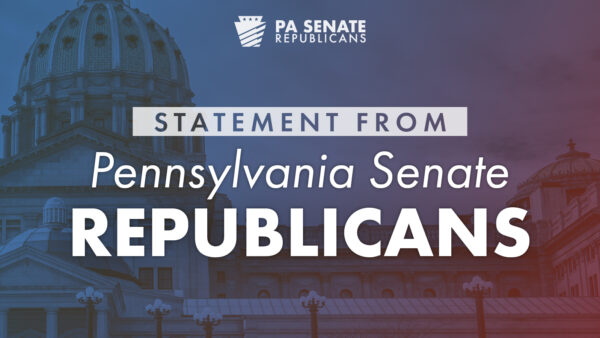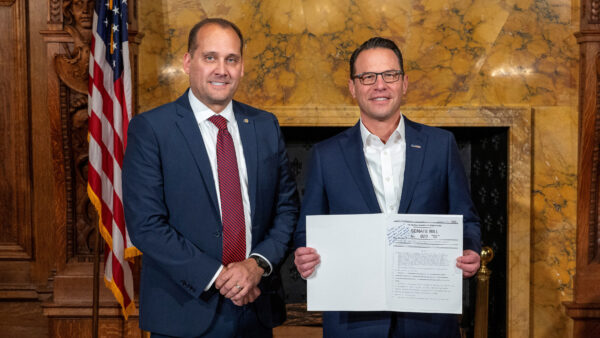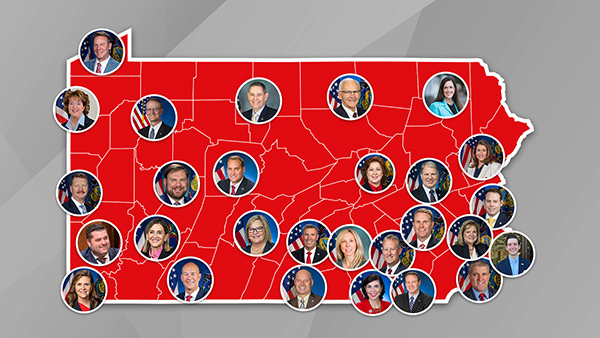
HARRISBURG – Senate Majority Leader Joe Pittman (R-41) and Senate Transportation Committee Chair Wayne Langerholc, Jr. (R-35) today issued the following statement in response to Governor Josh Shapiro’s decision to flex $153 million of federal highway and bridge capital funds.
“Our Senate Republican Caucus has made it clear from the outset that we will examine transit funding that makes sense and can be justified to commonwealth taxpayers who are being asked to pay the bill. We will not, and we have not wavered from our position.
“We reached a bipartisan agreement in July to temporarily fund SEPTA and other transit agencies to the tune of $80.5 million. Conditions of this funding included a re-examination of the delivery model given recent reductions in ridership, which are a direct result of Covid, people not working full-time in cities, and major safety concerns within the system. Rather than making prudent, sensible changes, they have chosen to politicize and pillage critical infrastructure projects for other districts which are well outside of SEPTA reach, ironically, the majority being in Republican districts.
“It is apparent today that the Democrats’ mindset is we can just spend more money on transit regardless of where it comes from. The fact of the matter is that the governor made a fairytale wish list to sizably increase SEPTA funding absent legislative involvement, which he failed to deliver. Equally troubling is the fact that SEPTA relied on this fairytale wish list in their budgeting process. We would be hard-pressed to find businesses in the commonwealth that operate on this type of budgeting principle. Now, instead of getting stuff done, the governor is taking stuff away by allowing roads and bridges in Republican districts to deteriorate.
“Transit funding is one side of a very large coin. The other side of the coin includes critical infrastructure projects of roads and bridges. These roads and bridges carry millions of commonwealth residents daily. Pennsylvania is the fourth largest contributor to mass transit in the country. Simply throwing more money at the problem without addressing the root causes will only further burden taxpayers and take away from road and bridge projects in the commonwealth as a whole. Robbing Peter to pay Paul should not be the solution to this problem.
“Whether the governor likes it or not, Pennsylvania does have a structural budget deficit. The action by the governor today will do nothing but harm millions of hard-working Pennsylvanians by depriving their areas of critical infrastructure. We will not apologize for being fiscal stewards of tax dollars. The bottom line is that there must be a significant overall re-examination of the SEPTA delivery model and mass transit.
“We remain committed to common sense reform with stakeholder input that benefits all commonwealth taxpayers.”
MEDIA CONTACTS:
Kate Flessner kflessner@pasen.gov (Sen. Pittman)
Gwenn Dando gdando@pasen.gov (Sen. Langerholc)







